In 2009, a highly regarded American weekly magazine, The New Yorker, which features journalism, commentary, criticism, essays, fiction, satire, cartoons, and poetry, published an article by author Ian Buruma, examining political developments in Malaysia.
The article, ‘Eastern Promises’, which had the sub-title, ‘A once imprisoned politician may be his country’s best chance for reform’, provided the world with a window into the nation’s political development during the era and post-era of Dr Mahathir Mohamad, and the role of race and religion in the country.
The political personality that the article focused on was Anwar Ibrahim, with a large part of the essay chronicling Anwar’s rise and fall and rise again, and providing perspectives from various respondents on the political developments, politicians and parties of that period.
The article posited that “[i]n the next general election, possibly as soon as 2010, Anwar may well become the prime minister of Malaysia”.
That possibility has happened although more than a decade later; with many - if not all – of the burning issues of that period still challenging the country and its leaders today.
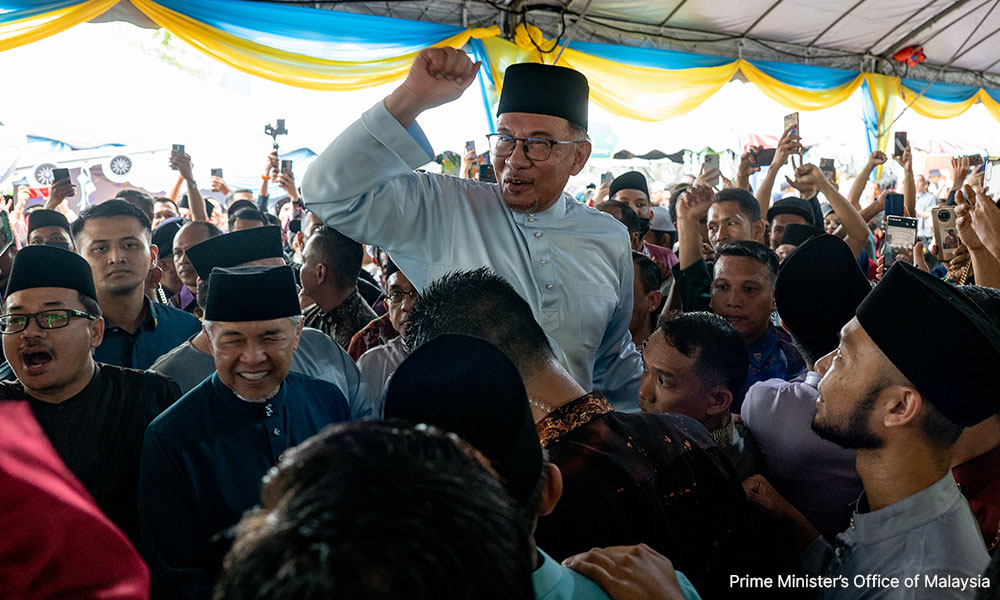
Following its publication, Anwar in a Facebook posting in 2010 reproduced the article in full, titled ‘The Malay Dilemma’.
Although that posting is no longer available, it is useful to be reminded of the article with its insights into the thinking of Anwar in his continuing political journey and the dilemma he struggles with to balance - and hopefully - overcome the forces of race and religion.
Extracts are inserted here with headings that are not part of the original.
Readers interested in the full article can access it here.
Anwar: Jewish, Chinese or Islamic lackey?
After his arrest, Anwar said, Mahathir gave a slide show for his cabinet colleagues, to justify the purge of his former heir apparent. There were photographs of current and former US officials - Robert Rubin, William Cohen, and Paul Wolfowitz - along with the World Bank president, James Wolfensohn.
“These are the people behind Anwar,” Mahathir explained.
(Mahathir denies showing any pictures, but allows, “I informed the cabinet about Anwar’s associates.”)
Nobody was likely to miss the implication; Mahathir has clearly stated his conviction that “Jews rule this world by proxy.”
At the Hilton, Anwar, who started his career as the president of the Malaysian Muslim Students Union, and is still a devout Muslim, shrugged.
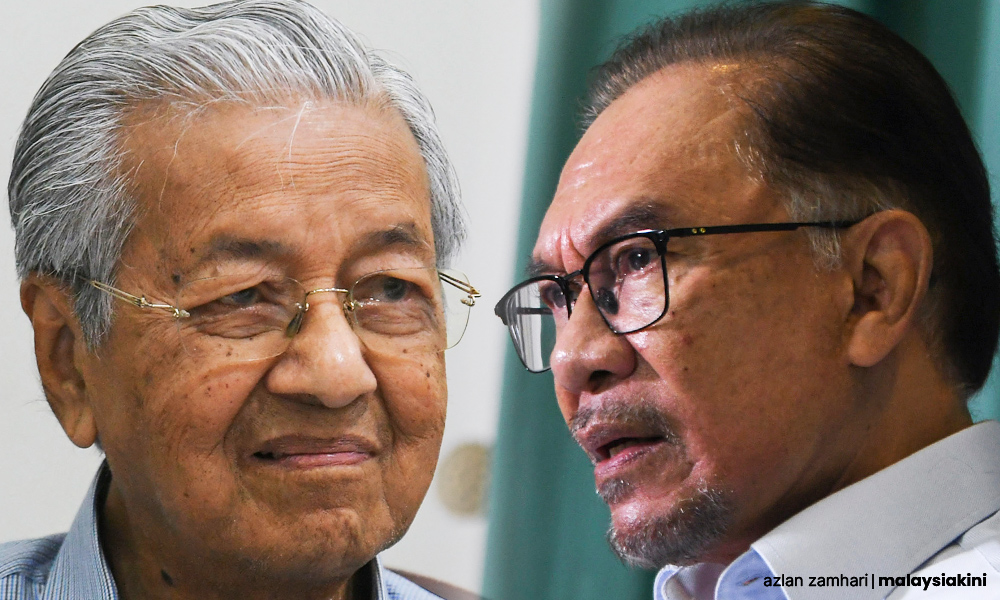
“They say I’m a Jewish agent, because of my friendship with Wolfowitz,” he said.
“They also accuse me of being a lackey of the Chinese.”
His eyebrows twitched in a gesture of disbelief, and he emitted a dry, barking laugh.
Race and religion in politics
To make sense of Anwar’s rise, fall, and rise, it helps to know something about the role of race and religion in Malaysia. The country’s population is more than half Malay, defined by ethnicity and the Muslim faith.
Still, large numbers of Chinese (now about a quarter of the population) and Indians (seven per cent) arrived in the nineteenth century, when the British imported coolies from China and plantation workers from India.
Tensions arising from this mélange - and, in particular, the fear held by Malays that they will always be bested by these minorities - have gripped Malaysian politics since the country achieved independence from the British, in 1957.
The situation has been further complicated in recent years by a surge in Islamic fervour among many Malays.
Impact of the NEP
Anwar, who could easily have joined the Islamists in PAS, was brought into the government to help put Mahathir’s ethnic theories into practice through the so-called New Economic Policy.
He continued to do so until the late ‘90s when the consequences had become too blatant to ignore: a bloated (in all senses of the word) Malay elite was raking in more and more of the country’s wealth; educated young Chinese and Indians were leaving the country in droves; and poor Malays were being kept in a state of fear by the propaganda in public schools and in the state-controlled press.
Without their special status, the Malays were told, they would be at the mercy of those rapacious, dominating Chinese “immigrants”.
Meanwhile, Mahathir’s rule had grown increasingly autocratic. In 2003, he was succeeded by the more amiable Abdullah Ahmad Badawi, who promised reform but delivered little.
Abdullah Ahmad, a confidant of Mahathir’s, told me that, if anything, corruption has grown worse.
“They’re making hay while the sun still shines.”
Hopes of the younger generation
Despite what must have been a very difficult childhood, Anwar’s daughter Nurul Izzah had a refreshing lack of bitterness, and spoke with a sense of humour, even a guarded optimism.
I had noticed this quality in others of her age, including Chinese and Indians, who were working for NGOs, writing blogs, or organising local communities.
Some have backgrounds in the community: I met Indian and Chinese politicians who started in labour unions. Others have studied abroad and decided to return, as activists or journalists. The most popular blogger is the half-Welsh, half-Malay scion of a royal family. (Most Malaysian states still have sultans.)
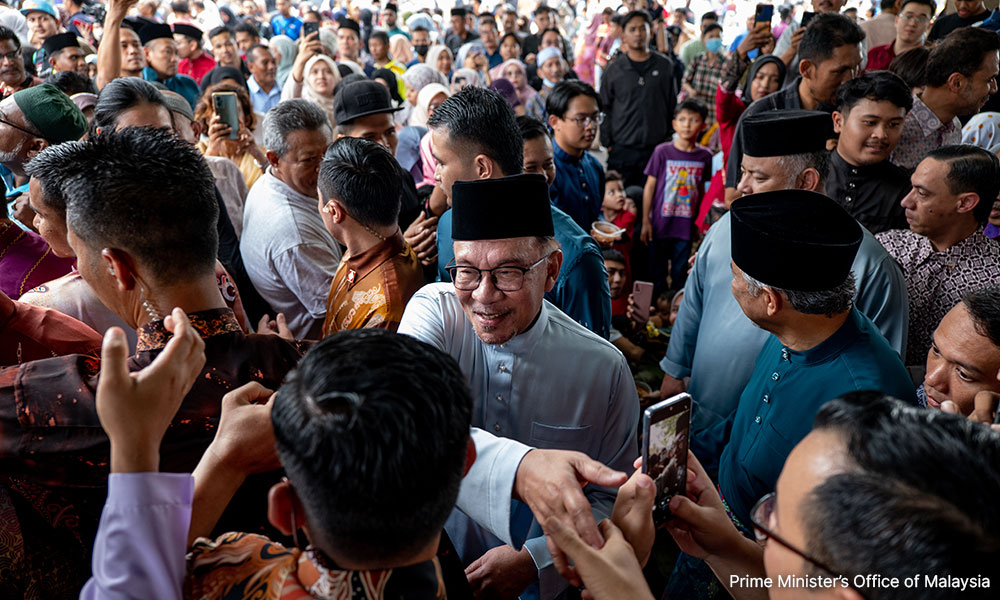
The two founders of Malaysiakini, the country’s best online news site, met as students in Australia. Some are religious; many are not.
But everyone, even myself, a staunch atheist, seems to agree that the chances of Malaysia’s becoming a more democratic, less racialist society depend almost entirely on the former Muslim student leader who helped institutionalise Malay nationalism: Anwar.
Indians and Hindraf role in political change
“I shall never forget that day,” Charles Santiago, a former MP who took part in the Hindraf protests, told me.
“There was pent-up frustration there before, but that day something snapped.”
The frustration had many sources: blocked job prospects, discrimination in education and property ownership, destruction of Hindu temples, and young Indian men dying mysteriously in police stations and prisons.
“The point of the petition was to raise consciousness among Indians about their rights, to embarrass the government,” Charles explained.
“But the crackdown was so heavy-handed that even the Chinese became sympathetic to our cause.”
It was the first time, Charles said, that “people of all stripes, rich and poor, went into the streets to make a point - this is what broke Umno’s back”.
The MIC lost heavily in the March 2008 election, as did the MCA. Many Indians and Chinese voted for Anwar’s PKR.
The transformation of Anwar
But the most important transformation over the past decade probably occurred in the mind of Anwar himself. He had long been critical of government policies, but almost up to the time of his arrest, he was still regarded as a rather arrogant Umno man.
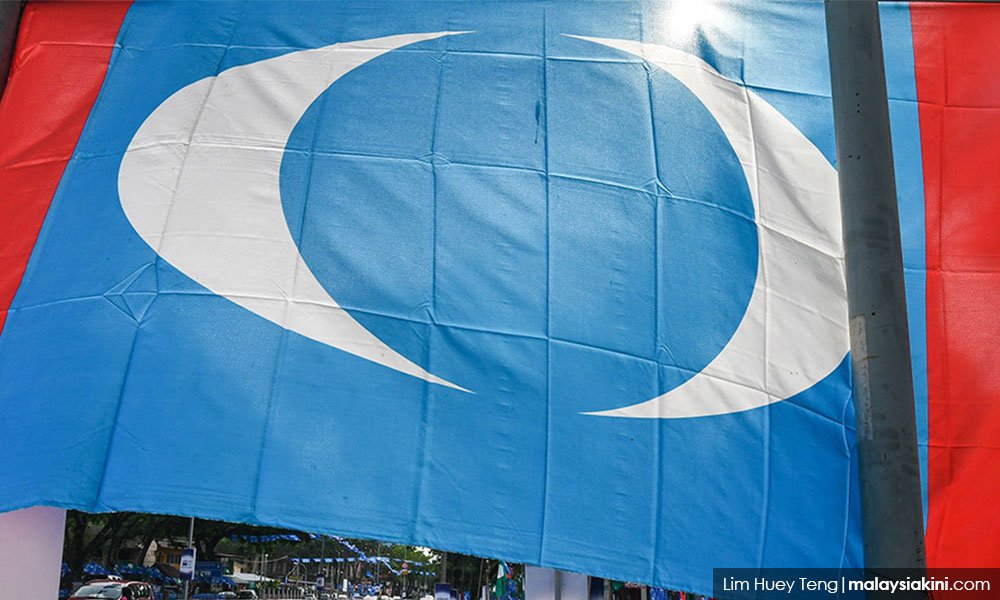
I tried to picture the haughty technocrat as he smiled at me in his daughter’s sparsely furnished office at the PKR headquarters.
All I saw was a charmer, whose fine dark hair, snappy spectacles, and black goatee gave him the air of a jazz-loving hipster of the ‘50s. Even at his own party headquarters, he spoke softly, sometimes in a whisper, aware that anything he said was likely to be overheard.
I asked him whether he had expected Mahathir - a man he had known for more than thirty years - to treat him so harshly.
“Yes and no,” he replied.
“I didn’t think he’d go that far. I’d seen him destroy opponents, but always short of using physical abuse.”
The 1998 trial was a humiliating spectacle, with elements of dark comedy: a mattress with semen stains was produced as evidence in court; police answered charges of abuse by claiming that Anwar had pressed a glass onto his own face. Years of solitary confinement provided much time for thought.
“Prison life is such that you have to impose a punishing discipline on yourself,” Anwar told me.
“Otherwise, you become lethargic, or a psycho.”
Deprived of books for the first six months, Anwar was eventually allowed to read Tocqueville, Shakespeare, Confucius, and the Indian and Arabic classics.
People power
A retired Indian civil servant told me about hearing Anwar speak in the district contested by his daughter in 2008.
It was nearly midnight and pouring down rain, yet more than a thousand people waited until Anwar arrived, on the back of a motorcycle, drenched. When he spoke, the crowd fell silent, listening to every word.
Then, suddenly, several Indians began to shout in Tamil, “Makkal Sakti! People Power! People Power!.”
The Malays and Chinese repeated it after them, louder and louder - an unusual demonstration of multi-ethnic solidarity.
Entrenched interests and ethnic quotas
When I spoke to Mahathir’s confidant Abdullah, who is a veteran Umno political operator, about his party’s fortunes, he sounded gloomy.
Umno, he told me, is like Chiang Kai-shek’s corrupt nationalists in Shanghai in the ‘30s.
He ticked off the party’s many ills on his fingers: “Corruption, ostentatious living, abuse of power, rank stupidity at the top…”
So, was Anwar going to win?
“He will if Najib fails to deliver great changes,” Abdullah predicted.
“Najib wants to, but he can’t. He’s surrounded by corrupt people.”
It’s not clear that Najib wants to make significant changes, despite recent speeches denouncing corruption in Malaysian politics. Anwar does, but it’s unclear whether he will be able to.
The entrenched interests - Malay bureaucrats, army officers, police officers, judges, businesspersons, and politicians - will fight to hold on to their privileges.
When I asked Anwar about this, he said such resistance could be managed by reformulating the quotas rather than abolishing them.
“Affirmative action would still be acceptable, but based on need, not on race,” he said.
“I tell PAS that Malays won’t lose out. But there are poor Indians, and poor Chinese, too, who should be helped.”
Anwar and the Islamic state
An advantage of replacing the rhetoric of race with that of class is that all opposition parties can agree on the ideal of equality. Religion is a more contentious matter. How to reconcile the Islamists and the secularists?
Anwar prefers to finesse the problem, by “concentrating on what we have in common, not what divides us”.
But PAS has stated its desire to introduce hudud laws for Muslims in the country - punishing criminal offences with stoning, whipping, and amputation. Secularist partners in a federal government would find that hard to accept.
“Any party should be free to articulate its ideas,” Anwar said.
“But no issue should be forced on non-Muslims. When I argue with Muslims, I cannot sound detached from rural Malays, like a typical Malay liberal, or sound like Kemal Atatürk (the former Turkiye president).
“I would not reject Islamic law out of hand. But without the consent of the majority, there is no way you can implement Islamic law as national law.”
Anwar’s Malay and Islamic dilemma
The real Malay dilemma today is that democrats need the Islamists: Malay liberals and secular Chinese and Indians cannot form a governing alliance without religious and rural Malays.
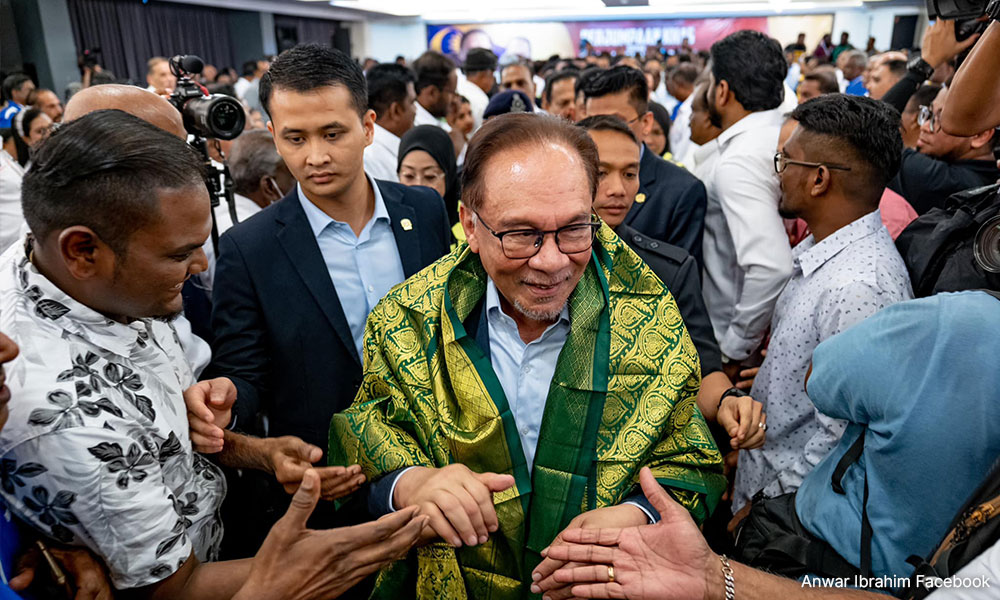
And the only serious contender who can patch over the differences between secularists and Islamists for the sake of reform is Anwar, a liberal Malay with impeccable Muslim credentials.
“He is our last chance,” (former law minister) Zaid (Ibrahim) told me, as he celebrated PAS’ victory in Kuala Terengganu in the recent state election.
When I repeated this to Anwar, he looked thoughtful and said: “Yes, and that’s what worries me.” - Mkini
LIM TECK GHEE is a former senior official with the United Nations and World Bank.
The views expressed here are those of the author/contributor and do not necessarily represent the views of MMKtT.



No comments:
Post a Comment
Note: Only a member of this blog may post a comment.